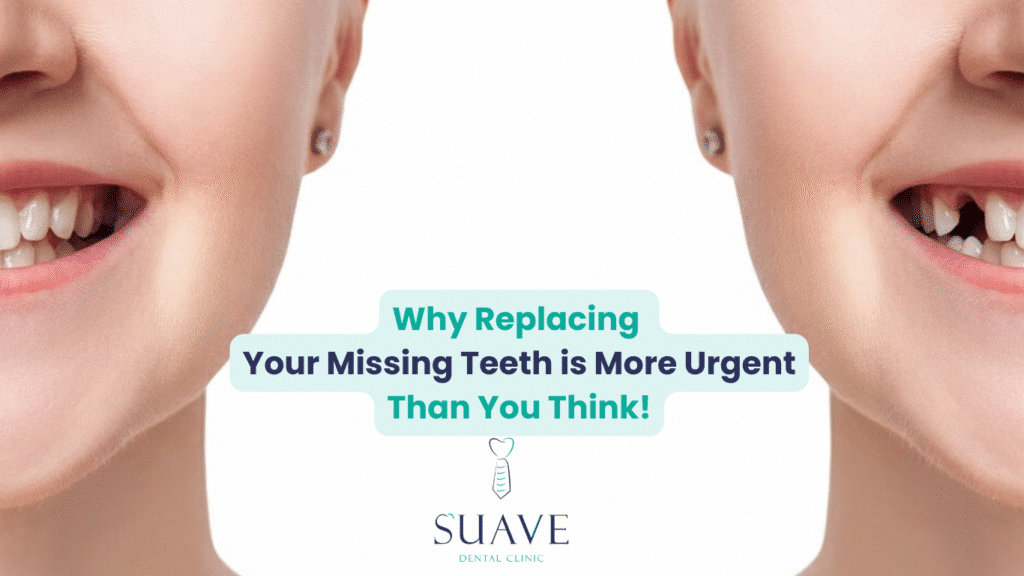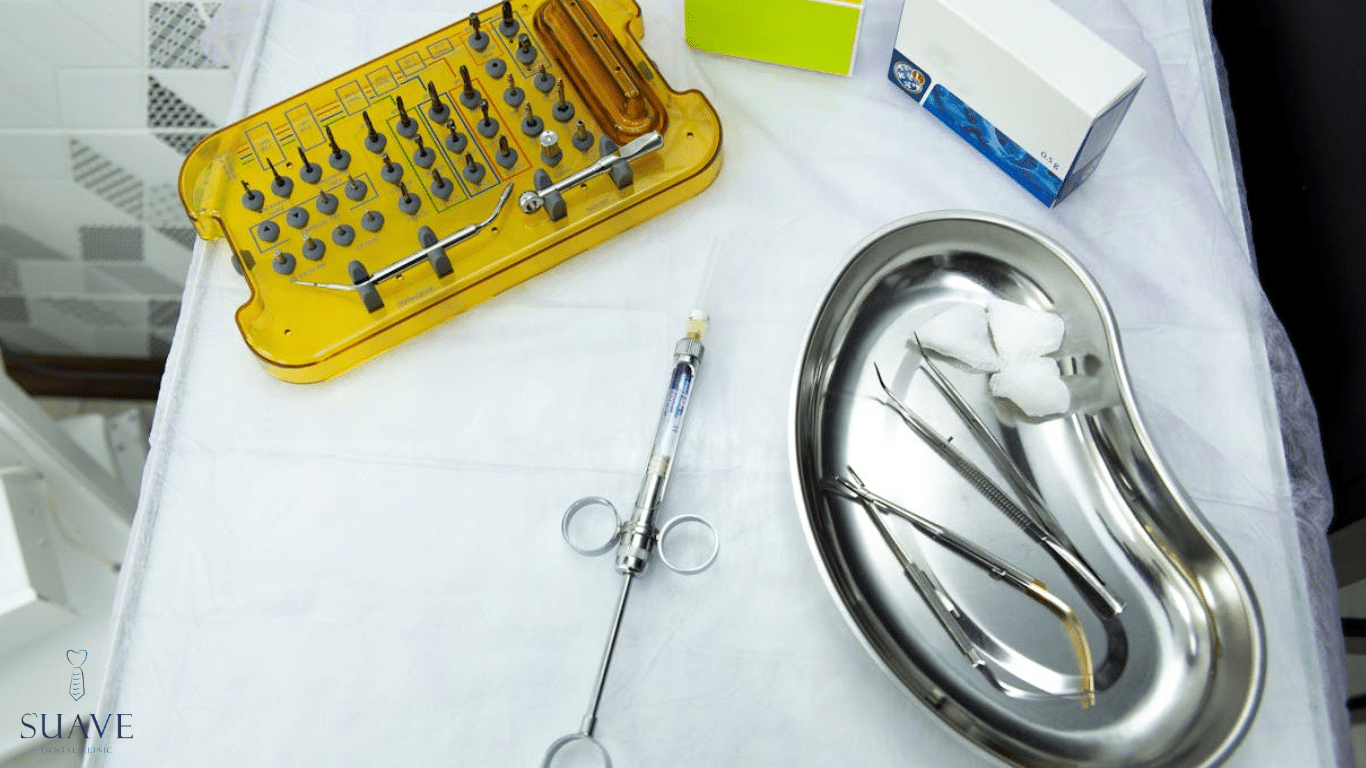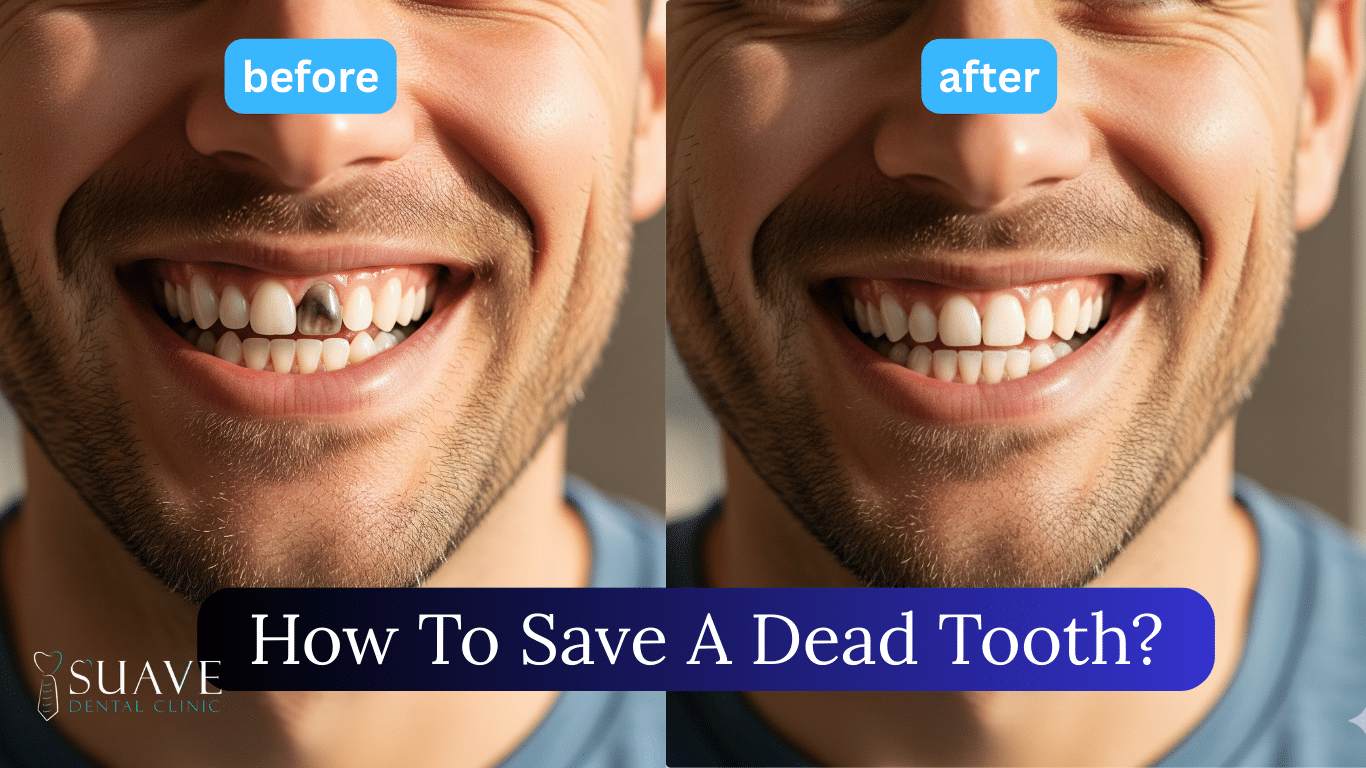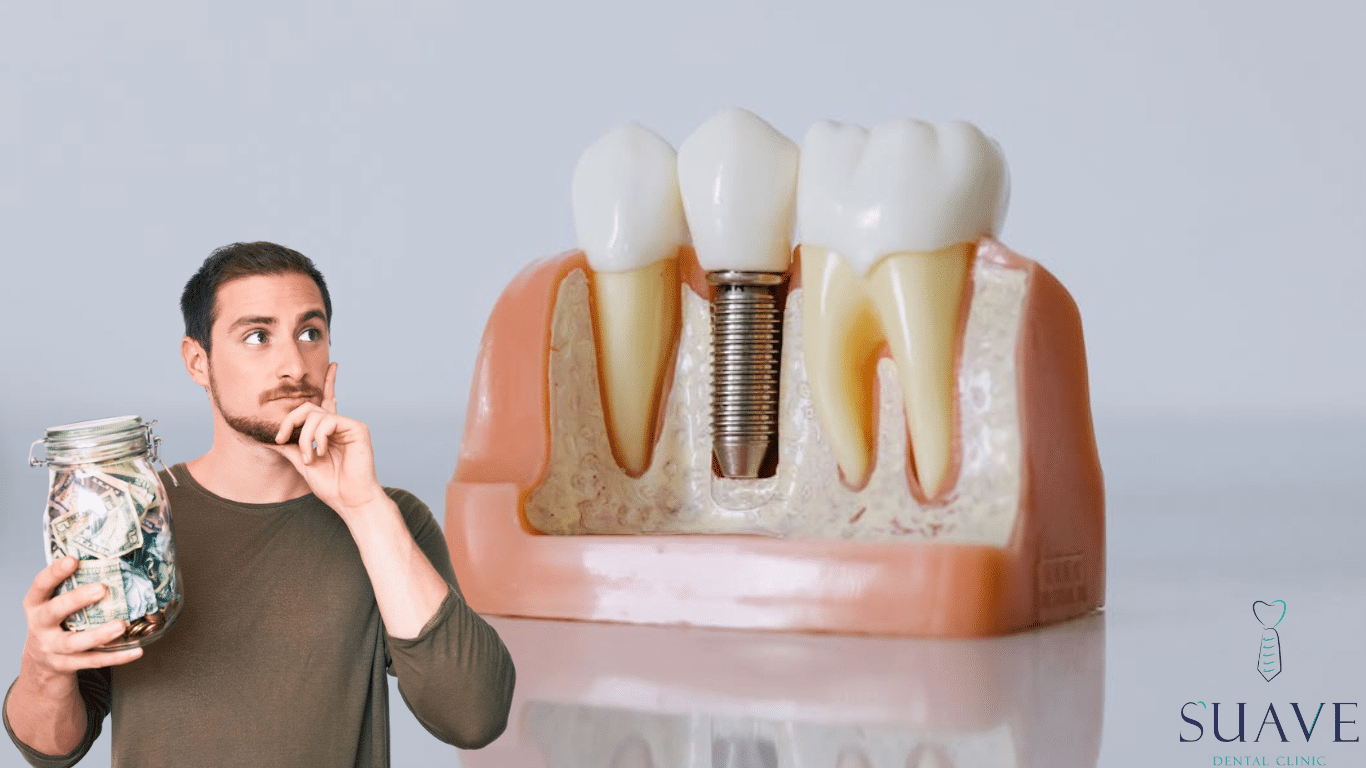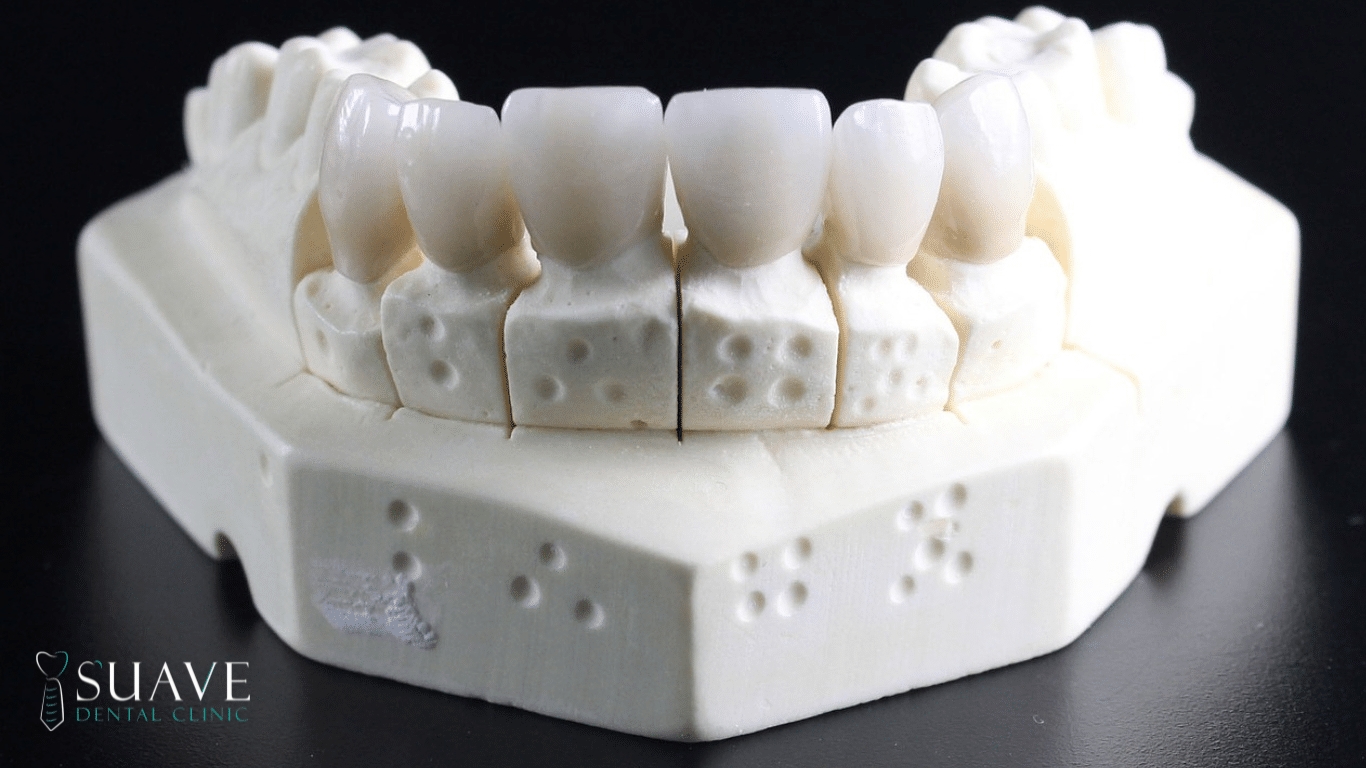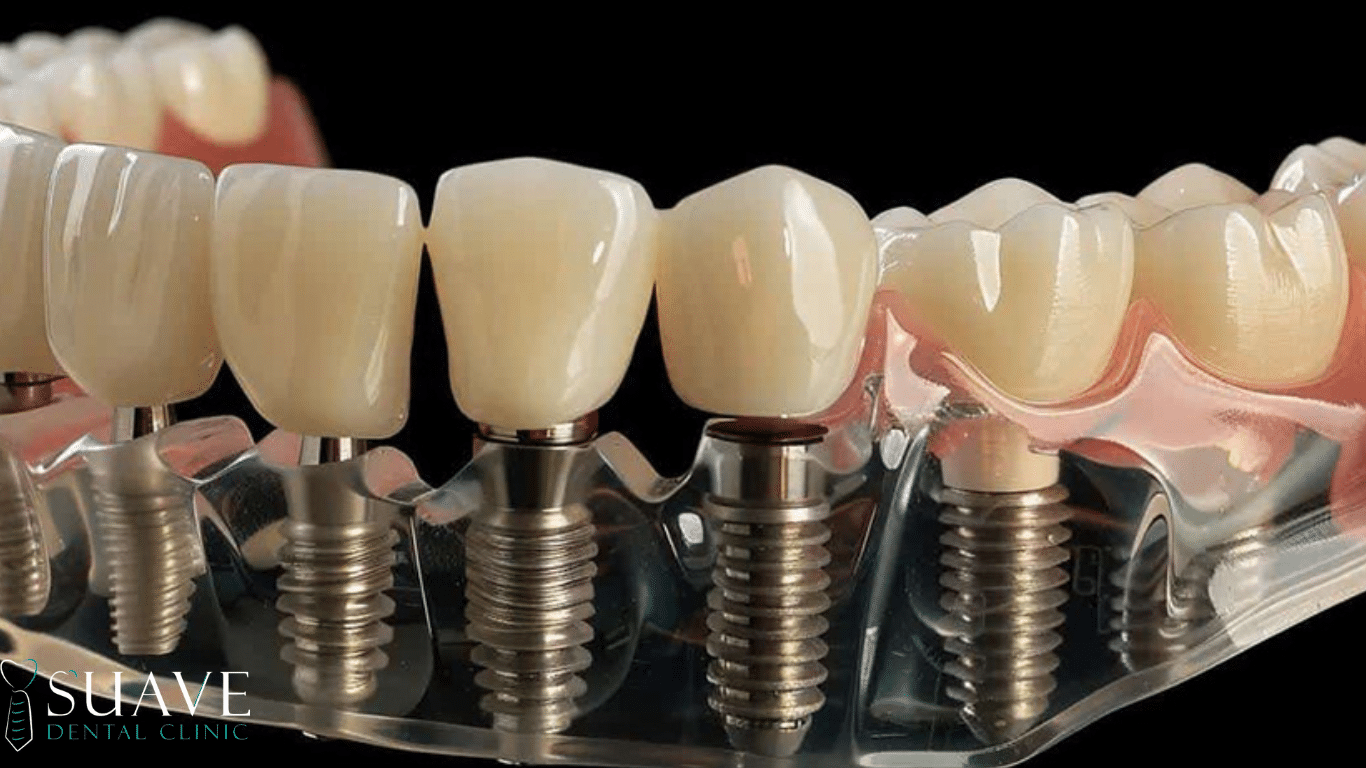Studies show that 1 in 5 adults under the age of 65 has at least one missing tooth, which can result from decay, injury, or gum disease.
Tooth loss creates a gap in your smile and an open space where the root once was. This is when most people start to ask:” What are my options for replacing missing teeth?”
Losing a tooth doesn’t just affect your smile; it can lead to jawbone loss, drifting teeth, and even affect digestion. The good news is that there are available varieties for replacing missing teeth, ranging from removable dentures to permanent, durable dental implants.
The reason why replacing missing teeth is more than getting a beautiful smile; it’s self-confidence, comfort chewing, and long-term oral health.
Reasons why you need to replace missing teeth
1- Prevent adjacent teeth from shifting
After even one missing tooth, naturally, the adjacent teeth will shift towards each other to close the gap as time passes, leading to a crooked bite, which is called malocclusion, difficulty chewing, and pain in your jaw, and results in TMJ disorders.
2- Restore the function of chewing food
Teeth are considered the first important step in digestion by breaking down food into small pieces.
Restoring your missing teeth, especially the back ones, will maintain a healthy chewing and mastication function and ensure proper digestion of food.
3. Restore your natural speech
Missing front teeth affects the pronunciation of words correctly or clearly, especially for sounds that require tongue-to-teeth contact like ‘s,’ ‘th,’ or ‘t.’, which can create a gap where air escapes, resulting in a lisp or other speech impediments
4. Preserve facial symmetry and volume
Filling missing teeth is important to keep jawbone stimulation strong and stable. If that doesn’t happen, the jawbone will shrink, and the gums will recede in the gap where the teeth are missing, which will change facial bone support and lead to lips and cheeks sagging inward, leading to a sunken or hollowed-out appearance.
This can make a person look much older than they are, resulting in “premature aging”.
5. Restore your self-confidence
Losing a tooth, especially when they are side-to-side missing teeth, will leave a gap in your smile, which makes the person avoid simple social situations like laughing or smiling for pictures.
Can a missing tooth be replaced?
Yes, missing teeth can be replaced in several ways and options. The choice of replacement method depends on several factors, including the patient’s oral condition, the treatment plan, and the available budget.
Importance of early replacement of missing teeth
The effect of missing teeth can significantly impact a person’s daily life, from the way they speak and chew to their self-confidence when smiling and speaking.
Yet, many people tends to delay tooth replacement, which can lead to long-term effects on their oral health, appearance, and overall well-being.
Replacing teeth as soon as possible can restore function, preserve their structure, and prevent serious health complications later on.
Complications if you ignore or delay replacing a missing tooth/ missing teeth
Delay in replacing missing teeth can cause many future problems, the most important of which are the following:
- Adjacent teeth tend to shift toward the missing areas, which affects the health of the adjacent teeth.
- Atrophy of the jawbones in the area of the extracted teeth causes sagging facial skin and gives the patient an older, less youthful appearance.
- Inflammation of the gums in the area of the missing teeth occurs when eating hard and crunchy foods.
- Gum recession around the adjacent teeth as the bone of the gaps is resorbed.
- Difficulty chewing and poor eating, causing digestive problems.
- Difficulty speaking and pronouncing words correctly, causing embarrassment and a lack of self-confidence.
- Erosion of the jaw cartilage and temporomandibular joint affects the appearance of the face.
How to replace missing teeth?
The following are the main ways to replace missing teeth:
- A dental implant, which is a titanium post, is surgically inserted into the jawbone to act like a tooth root, and then a crown is attached to it.
Restore the missing teeth’s feel and look without touching the adjacent teeth, leaving them sound and uncovered.
Dental implants could restore one missing tooth, or multiple teeth, by integrating with the bone and attaching to ceramic dental crowns or an implant-supported dental bridge.
- A Dental Bridge, which is a false fixed tooth (or teeth), is held in place by being attached to adjacent natural teeth or implants.
- A Partial or Complete Denture, which is a removable appliance that replaces one or more missing teeth, is held in place with a metal or acrylic clasp.
With Suave Clinic, you can book your free consultation and the most affordable treatment options that suait your case. When tou caontact us a specialist dentist will anser all your questions, listen to your complaints, and leads you to the best dental package to restore your teeth loss.
Don’t worry about costs, at Suave clinic in Turkey, we offer all-inclusive dental packages, discounts and offers for you. Wherever you are from, you will get yoyr teeth replaced and your smile fixed by experts.
FAQs about why replacing missing teeth is important
Is it unattractive to have a missing tooth?
Yes. Missing teeth affect both the appearance and function of the teeth, and some will find it unattractive to have a gap, especially in the front area.
How long can I go with missing teeth?
It is recommended to replace missing teeth 3 to 6 months after extraction to avoid shifting of adjacent teeth and loss of the surrounding jawbone.
Do missing teeth matter?
Yes, it matters not only for your smile but for your overall oral and body health.
What is the healthiest way to replace missing teeth?
Dental implants can resemble natural teeth as they restore function and help to maintain the jawbone.
Do veneers replace missing teeth?
No, veneers can not replace missing teeth, as it is a thin shell bonded to the surface of an existing tooth to cover minor discoloration of the teeth.
- Website, N. (2022, July 26). Dental treatments. nhs.uk. https://www.nhs.uk/live-well/healthy-teeth-and-gums/dental-treatments/
- Higuera, V. (2019, August 14). 3 options for replacing missing teeth. Healthline. https://www.healthline.com/health/dental-and-oral-health/missing-teeth
- Mark, A. M. (2021). Replacing missing or lost teeth. The Journal of the American Dental Association, 152(5), 412. https://doi.org/10.1016/j.adaj.2021.02.014
